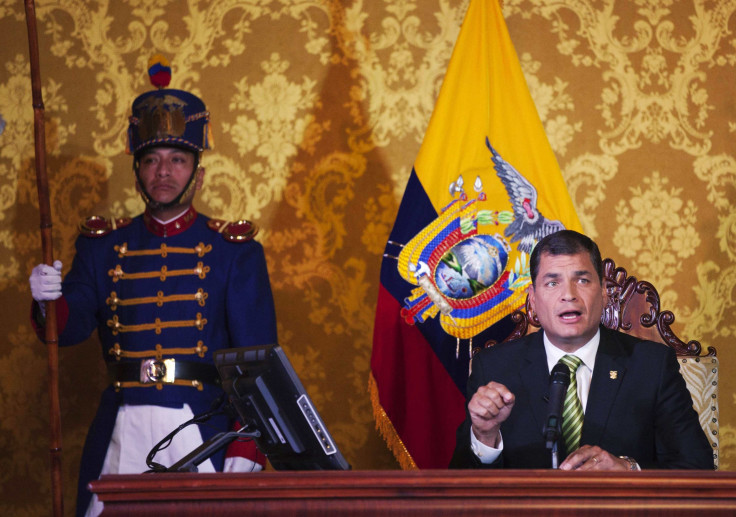Ecuador Reconsidering Drilling In Pristine Amazon Bio Reserve For Oil After Wealthy Nations Failed To Contribute To Offset Ecuador’s Loss

Ecuador’s President Rafael Correa announced on Thursday his decision to abandon an ambitious project that would have kept oil rigs out of a pristine Amazon rainforest preserve, claiming that rich nations did not do enough to help offset the country’s losses incurred from preserving the environment.
Ecuador had set a target of $3.6 billion in donations to uphold a moratorium on drilling in the remote Yasuni National Park, which is said to be one of the largest oil reserves in the country. According to the United Nations Development Program, or UNDP, it holds 846 million barrels of heavy crude oil, currently estimated to be worth more than $7.2 billion.
However, Ecuador had raised only $13 million in actual donations and $116 million in pledges so far, Correa said, adding that he had an obligation toward his country, which prompted him to approve renewed drilling, the Associated Press reported.
“The world has failed us,” Correa said in a nationally televised speech. He said the global recession played a part in the international community’s reluctance to contribute toward the cause, but he also blamed “the great hypocrisy” of wealthy nations that are responsible for most of the world’s greenhouse gases.
“It was not charity that we sought from the international community, but co-responsibility in the face of climate change,” Correa said, adding that the decision to approve drilling was one of the most difficult decisions he had taken as president.
In Ecuador’s capital, Quito, hundreds of people gathered to protest against Correa’s decision, BBC reported.
Correa’s proposal to abandon drilling on the condition that the international community would jointly shoulder the responsibility to preserve the environment was welcomed by various governments and international bodies at the time.
And, it was seen as the harbinger of an era of cooperation between developed and developing economies in key areas of human interest such as sustainable development and climate change.
The initiative was supported by 78 percent of Ecuador's citizens, according to UNDP, and it had the potential to avoid 800 million metric tons of CO2 emissions resulting from deforestation, and more than 400 million metric tons of CO2 emissions from the burning of oil and other factors.
In exchange for donations, Ecuador had issued Yasuni Guarantee Certificates, an instrument that did not earn interest or expire as long as Ecuador maintained its commitment not to drill for oil in the region, according to UNDP.
Ecuador is heavily dependent on revenues from oil exports, and drilling in Yasuni is expected to start over the coming weeks.
Yasuni National Park is one of the most diverse biological reserves in the world, and it is home to the Tagaeri-Taromenane indigenous tribes, who live in voluntary isolation, according to UNDP.
© Copyright IBTimes 2025. All rights reserved.






















